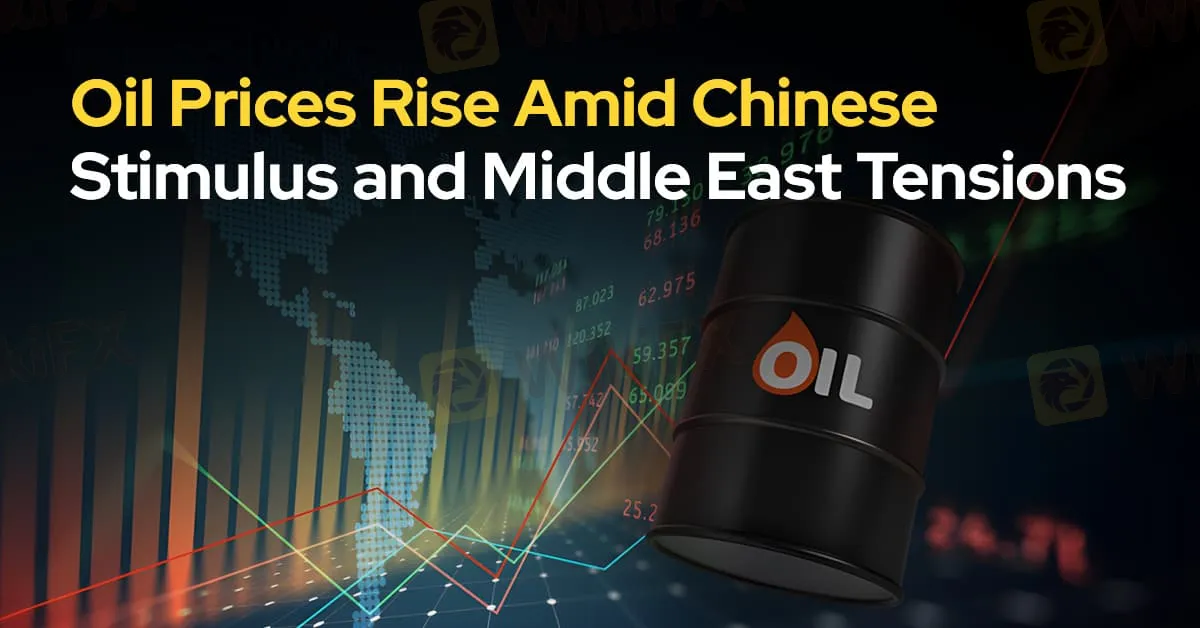简体中文
繁體中文
English
Pусский
日本語
ภาษาไทย
Tiếng Việt
Bahasa Indonesia
Español
हिन्दी
Filippiiniläinen
Français
Deutsch
Português
Türkçe
한국어
العربية
Oil Prices Rise Amid Chinese Stimulus and Middle East Tensions
abstrak:According to report, oil prices experienced a notable increase this week, with Brent crude climbing above $74 a barrel after a period of volatility.

Oil prices experienced a notable increase this week, with Brent crude climbing above $74 a barrel after a period of volatility. This rise follows a series of aggressive economic measures introduced by Chinese authorities, aimed at revitalizing the nations slowing economy. Meanwhile, escalating tensions in the Middle East, particularly involving Israel and Hezbollah, have contributed to the market's volatility.
After dipping by 0.8% on Monday, West Texas Intermediate was trading close to $71. The boost in prices can be attributed to recent announcements from Pan Gongsheng, the governor of the People's Bank of China, who outlined a comprehensive strategy to achieve the country's growth target of around 5% for the year. Key initiatives include enhanced lending capabilities for financial institutions and a reduction in the central bank's short-term interest rates, which are expected to stimulate both economic growth and energy demand in the worlds largest oil consumer.
According to Han Zhong Liang, an investment strategist at Standard Chartered Plc in Singapore, “These measures could positively impact China's demand for oil. The real challenge will be how effectively these lower rates translate into real economic activity.”
Conversely, the oil market is grappling with concerns about a faltering Chinese economy and the potential for increased supply from OPEC+, which has resulted in a 14% decline in prices over the past quarter.
In parallel, the geopolitical landscape has become increasingly tense as Israel launched a series of strikes against Hezbollah positions in southern Lebanon, leading to approximately 500 fatalities—marking the deadliest day of conflict since the 2006 war. Although Iran, a key ally of Hezbollah, has expressed a desire to de-escalate, the situation remains volatile.
As the market reacts to these dual pressures from economic policy and geopolitical tensions, the direction of oil prices will heavily depend on developments in China and the stability of the Middle East shortly.

Disclaimer:
Ang mga pananaw sa artikulong ito ay kumakatawan lamang sa mga personal na pananaw ng may-akda at hindi bumubuo ng payo sa pamumuhunan para sa platform na ito. Ang platform na ito ay hindi ginagarantiyahan ang kawastuhan, pagkakumpleto at pagiging maagap na impormasyon ng artikulo, o mananagot din para sa anumang pagkawala na sanhi ng paggamit o pag-asa ng impormasyon ng artikulo.
Broker ng WikiFX
Exchange Rate


